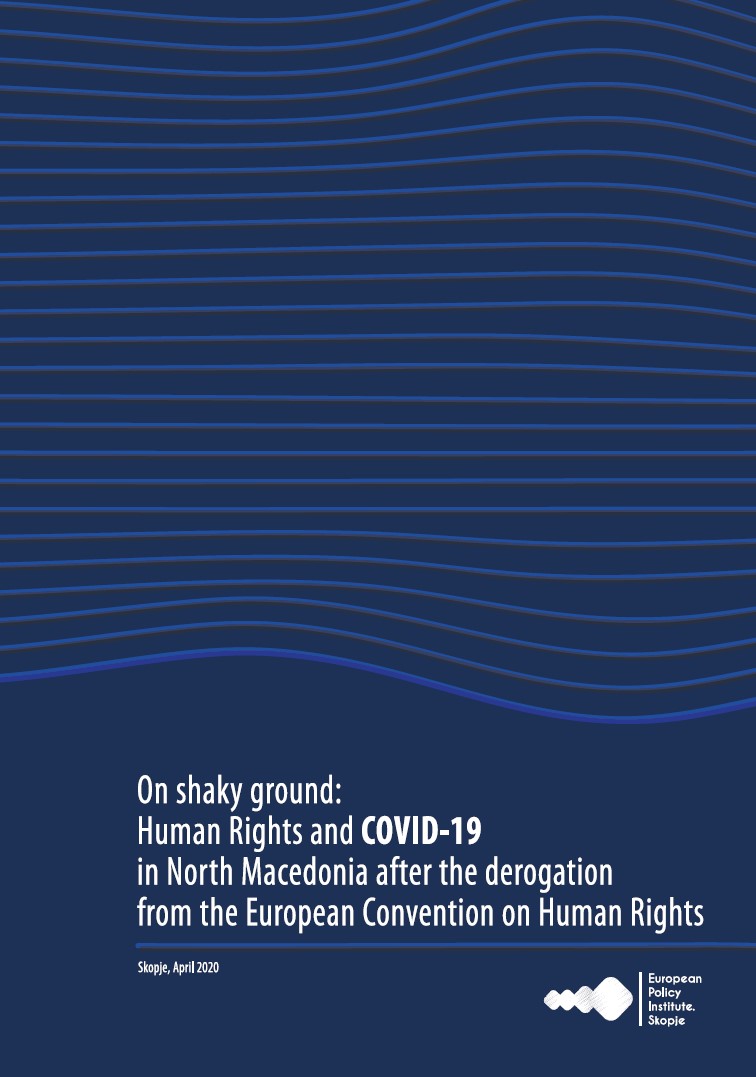After the concern about the impact of new pandemic viral infection on the availability and accessibility of healthcare services (including abortion and mental health), labour rights (including those of journalists), corruption, the rights of persons deprived of liberty and of the victims of human trafficking and exploitation, as well as the impact on gender equality, including through the expected increase in domestic violence, several days ago the (perhaps) anticipated, yet worth re-visiting, step came. Namely, North Macedonia derogated from the European Convention of Human Rights (ECHR) in relation to the state of emergency introduced as a result of the spreading of COVID-19.
This seems like a completely expected next step after the country declared a state of emergency. However, we do believe that it is important to bear in mind that the derogation significance, assessment and consequences will not only depend on how well-conceived and carried out the initial step – the submission of the notification about the derogation was, but also on all the other upcoming steps that the country would take from now on, until the day the derogation ceases. These would be the elements that the European Court of Human Rights (ECtHR) would focus on when reviewing the cases that will be submitted in connection to the measures that the states undertook or failed to undertake during the COVID-19 crisis. However, in addition, and equally important is the fact that this crisis will pose a new challenge for the domestic courts as well, as already indicated by the Fundamental Rights European Union Agency for Fundamental Rights (FRA); the domestic courts will need to assess the necessity and proportionality of the introduced measures in the cases related to these measures.

